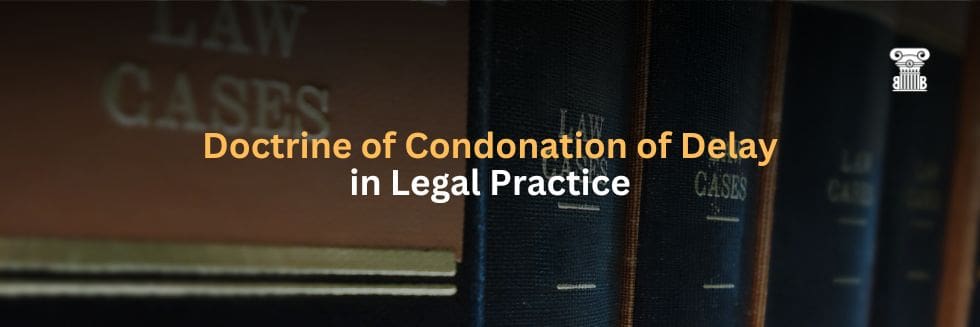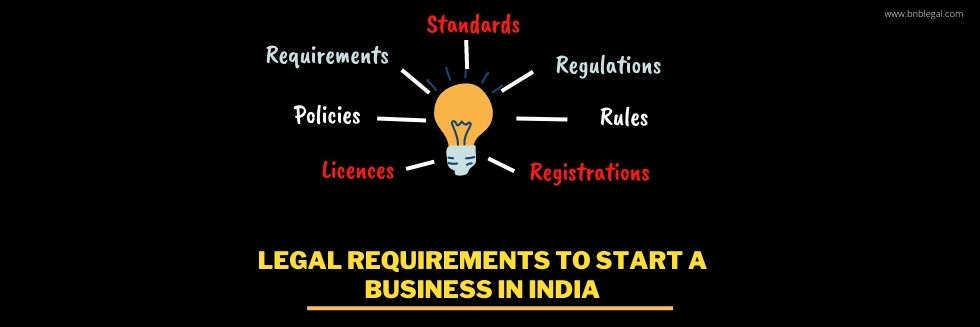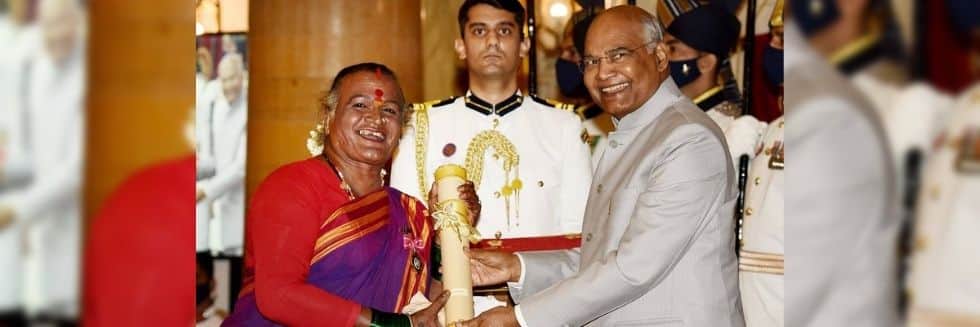The word limitation should be understood literarily because the term itself conveys its meaning, i.e. restriction, regulation, or situations that are limited. It signifies that the circumstances in which the legal remedy is sought are barred by time. The law of limitation specifies a time limit within which an aggrieved party must approach the court to get a legal remedy. According to the law of limitations, no court has jurisdiction to try a matter or to hear an application or appeal if it is submitted beyond the stipulated period.
The Limitation Act of 1963 mentions the doctrine of condonation of delay. The Act establishes time restrictions for certain cases and specifies when a suit, appeal, or application may be filed. The expiration of such period results in the extinguishment of the remedy available to the aggrieved party.
This doctrine of condonation of delay is an exemption to the limitation period. This doctrine allows the aggrieved party to institute a suit even after the expiry of the limitation period if the party can provide “sufficient cause” for the said delay, the court has the discretionary power to overlook or “condone the delay” and proceed with the case.
Section 5 of the Act elaborates on the extension of the specified term in specific instances. It states that any appeal or application may be granted after the required term provided the applicant/appellant can show that they have “sufficient cause” for not filing the appeal/application within the prescribed period.
In Raheem Shah & Anr. v. Govind Singh & ors, The Hon’ble Supreme Court emphasised on a more “justice-oriented approach” rather than “the iron-cast technical approach” while dealing with matters regarding condonation of delay.
CASE DETAILS
Raheem Shah & Anr. v. Govind Singh & ors
Court: Supreme Court Of India
Coram: HON’BLE MR. JUSTICE A.S. BOPANNA & HON’BLE MS. JUSTICE BELA M. TRIVEDICase no.: SLP (C) No.27901/2015
Date of Judgement: 24th July, 2023
Brief Facts
- In Raheem Shah & Anr. v. Govind Singh & ors., the respondent no. 01 was a plaintiff in the original civil suit. The trial court passed a final decree on 1st of October, 2005. The appellants in the present case were Defendants No. 1 and 2 in the original civil suit. They filed a regular first appeal under section 96 of the Civil Procedure Code, 1908 challenging the said judgement. As there was a delay of 52 days in filing the appeal, therefore, they also made an application for condonation of delay under section 5 of the Limitation Act, 1963.
- The appellants contended that they did not have knowledge of the judgement, as they did not take an effective part except by filing a written statement.
- The court, on 8th of October, 2010 dismissed the said civil appeal on the grounds of limitation and stated that there was no sufficient cause to condone the delay.
- The appellants filed a second appeal against the judgement in the High Court of Madhya Pradesh. The said appeal was dismissed on the 16th of April, 2015, on the grounds that there was no question of law for consideration.
- The appellants aggrieved by the decision of the High Court, preferred an appeal before the Supreme Court of India. The Supreme Court took note of the contentions made in the first appeal.
Judgement
The Hon’ble Supreme Court referred to Land Acquisition, Anantnag & Anr. Vs. Mst. Katiji & Ors. reported in (1987) 2 SCC 107 and explained that a justice-oriented approach was set as a priority three decades ago, however, in the present case an extensively insensitive approach was followed which burdened the hierarchy of courts unnecessarily and prolonged the agony of the aggrieved.
The court stated that had the courts been more attentive towards a justice-oriented approach instead of an iron-clad technical method, the current dispute would have been resolved considerably sooner.
The Supreme Court set aside the judgment dated 16.04.2015 passed by the High Court as also the judgment dated 08.10.2010 passed by the lower Appellate Court and held that dismissing an appeal for condonation of delay by the lower appellate court when the said delay was not inordinate, was not justified. Furthermore, the dismissal of the appeal by the High Court on the grounds that there was no question of law was also unjustified.
Conclusion
Where the Law of Limitation guarantees that the case is submitted within the prescribed time frame in order to avoid unnecessary delays, and it is the embodiment of the legal maxim, Vigilantibus non-dormientibus jura subventions, which means the law will not help those who sleep on their rights. Condonation of delay is an exception to the law of limitation which provides a safeguard in situations wherein the delay caused in filing any suit has a “sufficient cause.”
It is pertinent that there is a balance between, the rights of the applicant who applies the expiry of the limitation period and the rights gained by the party on such delay. The doctrine of condonation of delay ensures this balance and upholds the principle of natural justice. It acknowledges that various people face various scenarios which may cause different problems in life which may further cause delay and that it is essential to give a chance to people to explain why such delay was caused. Further, the court may be more justice-oriented while deciding cases on Condonation on Delay.
_________________________________________________________________________________________________________
This article was written and submitted by Soudamini Sharma during her course of internship at B&B Associates LLP. Soudamini is a 4th-year BB.A.LL.B (hons.) student at Himachal Pradesh National Law University.









